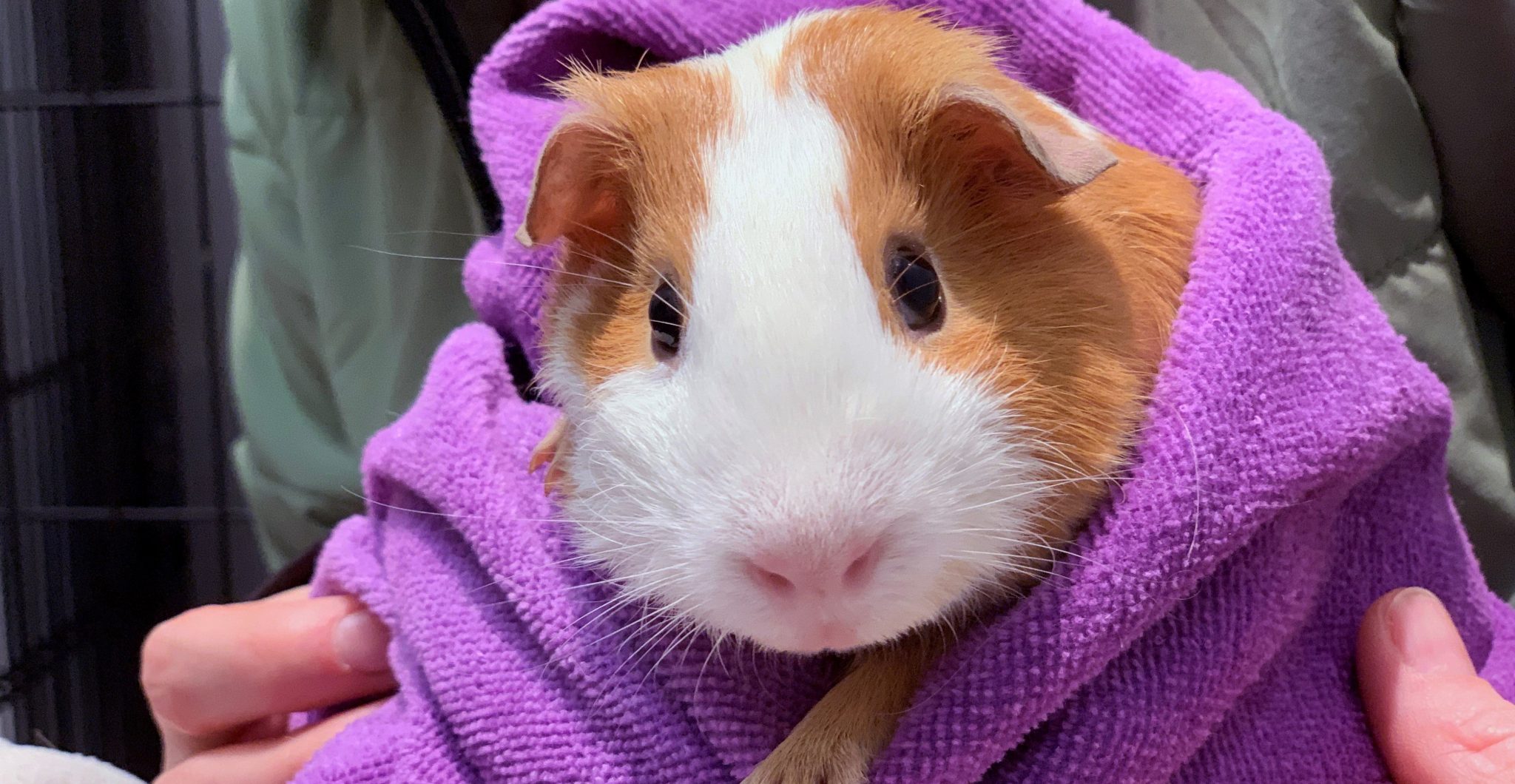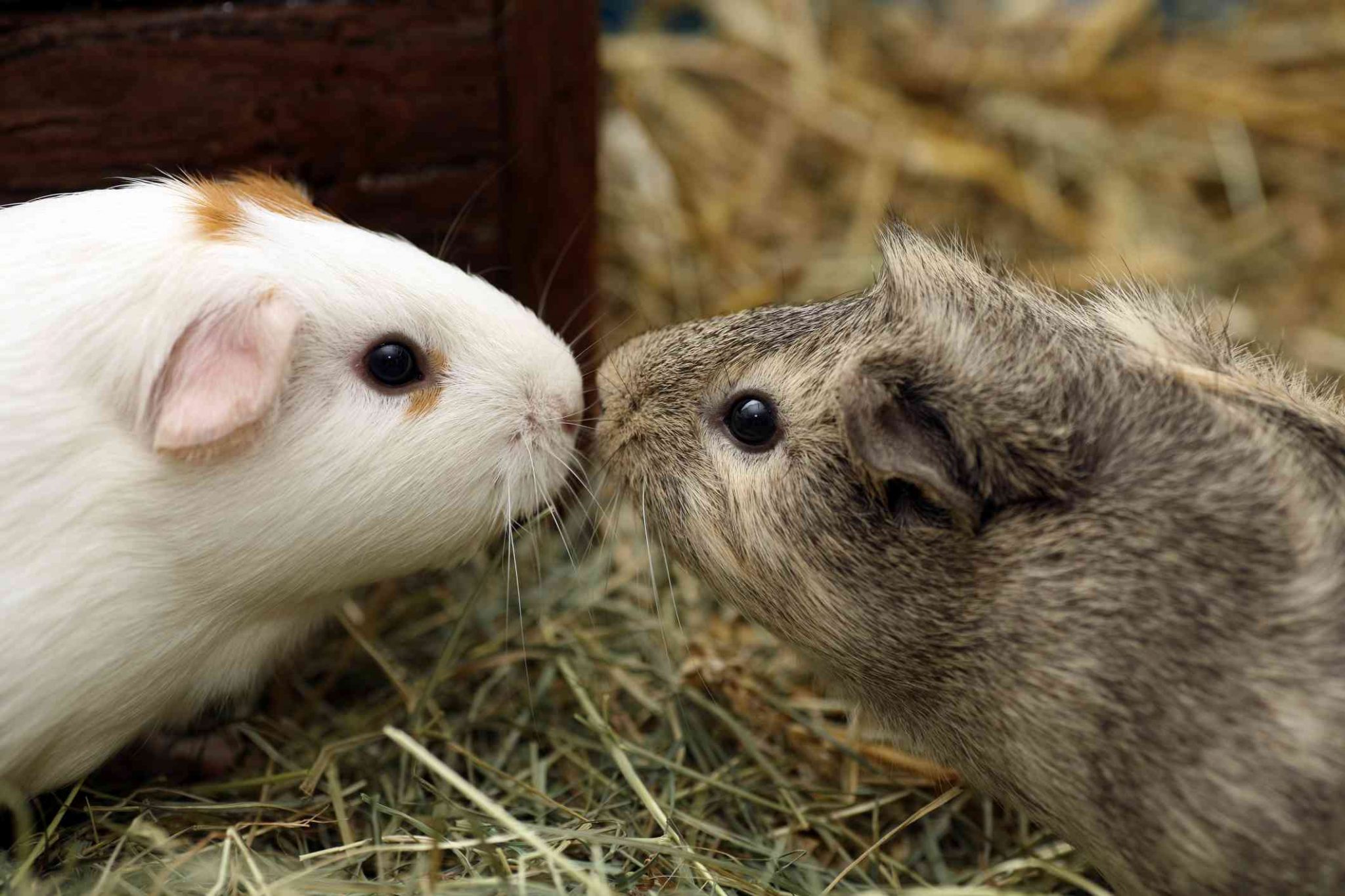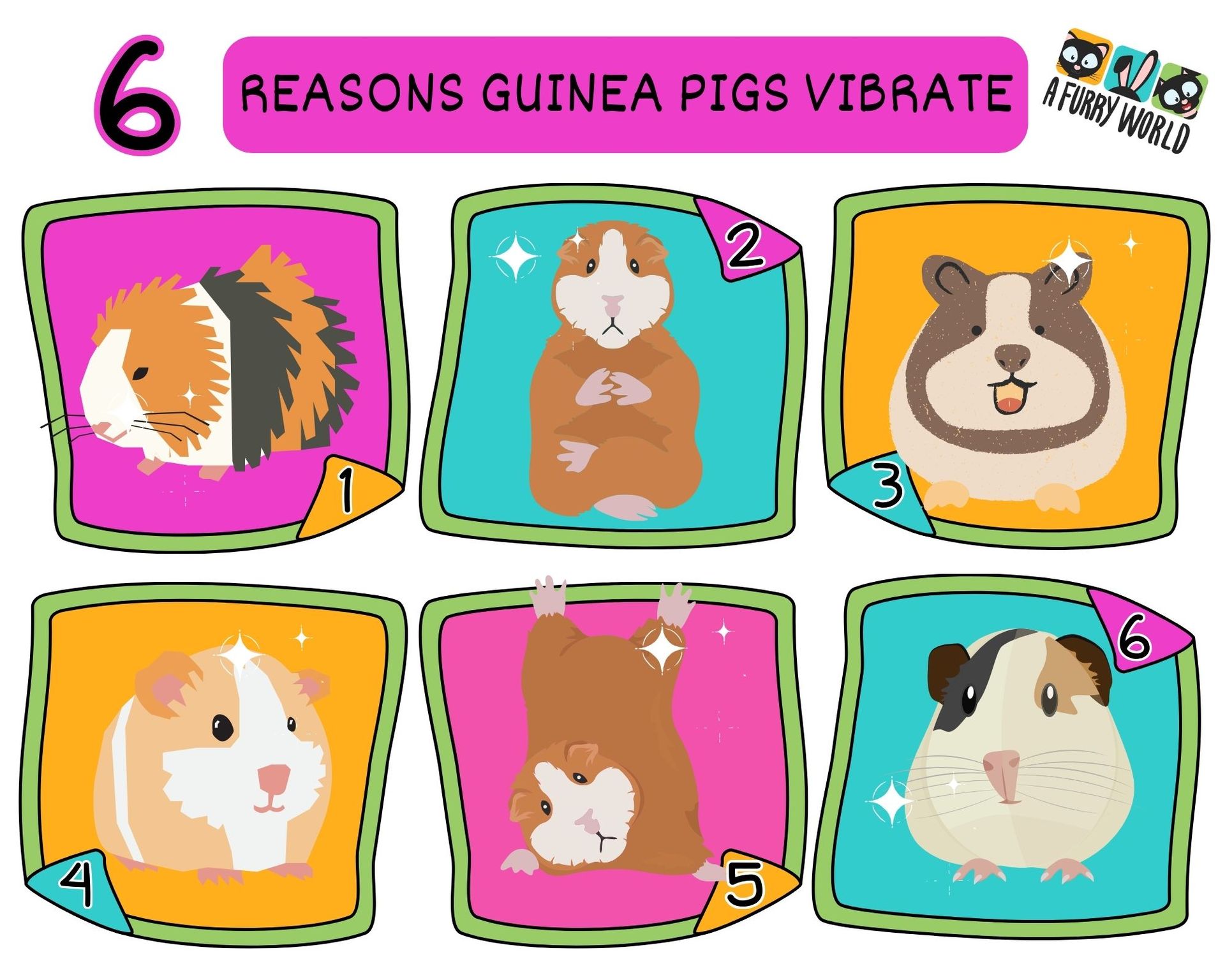Have you ever noticed your sweet guinea pig shaking a little, or maybe even buzzing? It can be a rather puzzling thing to witness, especially when you are not quite sure what it means. Many pet parents, you know, find themselves scratching their heads, wondering about these peculiar motions. It is a common question, actually, a bit like asking "why is it like that?" about something you just cannot quite figure out at first glance. Understanding these little trembles and shivers is a pretty important part of connecting with your small, furry companion.
Guinea pigs, as a matter of fact, communicate in ways that are not always obvious to us humans. They do not use words, obviously, but they have a whole range of sounds and body movements that tell us a lot about how they are feeling or what they want. These vibrations are just one piece of their unique communication system, and learning to interpret them can really help you provide better care for your pet. It is a process of discovery, you see, much like trying to figure out the reason behind a name or a common phrase; you are just looking for the purpose behind the action.
So, if you have ever found yourself asking, "why do guinea pigs vibrate?" you are certainly not alone. It is a question that pops up a lot among those who share their homes with these delightful little animals. There are, it turns out, several reasons why your guinea pig might be doing this, and each one tells a slightly different story about their mood or intentions. Getting to know these signals will definitely make your bond with your pet even stronger, allowing you to respond to their needs with a bit more confidence.
- Electric Kettle Crossword
- Barack Obama Mbti
- Marshmallow Suit Army
- Heidi Klum Commercial
- 90 Feet From Home Ending Explained
Table of Contents
- Why Do Guinea Pigs Vibrate When They Are Content?
- The Happy Purr - Why Do Guinea Pigs Vibrate?
- What Does a Shiver Mean- Why Do Guinea Pigs Vibrate?
- When Unease Sets In- Why Do Guinea Pigs Vibrate?
- Why Do Guinea Pigs Vibrate During Social Interactions?
- Rumbling and Chattering - Why Do Guinea Pigs Vibrate?
- Are There Health Reasons- Why Do Guinea Pigs Vibrate?
- Signs of Discomfort - Why Do Guinea Pigs Vibrate?
Why Do Guinea Pigs Vibrate When They Are Content?
One of the most heartwarming reasons you might feel a little tremor from your guinea pig is that they are feeling quite pleased with things. This particular type of movement is often called a "purr," and it is very similar to what a cat might do, but with a different sound and feel. When your guinea pig is settled on your lap, perhaps getting a gentle stroke behind the ears, and you notice this soft, rumbling motion, it is a very good sign. It basically means they are feeling safe, secure, and pretty happy right where they are. It is their way of saying, "This is good, I like this a lot." You know, it is a clear signal of comfort.
The Happy Purr - Why Do Guinea Pigs Vibrate?
The happy purr, which is one way why do guinea pigs vibrate, is typically a low, steady sound accompanied by a subtle tremor throughout their small bodies. You might feel this more than you hear it, especially if they are nestled close to you. It is often a sign of pure relaxation. Think about it: when you are totally at ease, maybe after a nice meal or during a quiet moment, you just feel calm. For a guinea pig, this purr is their version of that calm. It is a sign they trust you and feel completely at peace in their surroundings. This motion can also happen when they are enjoying a favorite treat, or just lounging comfortably in their cage. It is a simple expression of joy, really, a little vibration of contentment that brings a smile to your face.
This contented vibration is also a good indicator of their overall well-being. A guinea pig that purrs often when handled or relaxed is probably a guinea pig that feels well cared for and loved. It is a direct response to positive stimuli, so like, a pleasant interaction or a comfortable environment. Paying attention to when and where these happy vibrations occur can help you understand what your pet truly enjoys. It is their silent applause, in a way, for the good things in their life. You know, it is a very sweet thing to experience with them.
What Does a Shiver Mean- Why Do Guinea Pigs Vibrate?
On the flip side, not all vibrations from your guinea pig are signs of happiness. Sometimes, a different kind of tremor can indicate they are feeling a bit uneasy or even scared. This type of vibration is often more intense, perhaps a bit more frantic, than the gentle purr of contentment. It is their body's way of reacting to something that makes them feel vulnerable or threatened. Just like we might tense up when startled, a guinea pig might start to shake or shiver. It is a clear signal that something in their immediate environment is causing them distress, and it is a very important signal to recognize, obviously.
When Unease Sets In- Why Do Guinea Pigs Vibrate?
When unease sets in, you might notice why do guinea pigs vibrate in a way that feels different from a happy purr. This shiver often comes with other body language cues, like freezing in place, trying to hide, or even making a quick dash for cover. They might also have wide eyes, or their ears might be flattened against their heads. These are all signs that your guinea pig is feeling vulnerable and possibly afraid. This can be triggered by sudden loud noises, new smells, or the presence of an unfamiliar person or animal. It is their natural instinct to react this way to perceived danger, a sort of built-in alarm system, you know.
It is important to address the source of their fear quickly if you notice this kind of vibration. Sometimes, it is as simple as removing a loud toy or providing a safe hiding spot. Other times, it might be a sign that they are not comfortable with how they are being handled. Understanding this particular type of vibration means you can act to make your pet feel safer and more secure. It is their way of asking for help, or for you to remove the perceived threat. So, paying close attention to these signals can really make a difference in their comfort levels, which is pretty essential for their well-being.
This kind of vibration, when it is linked to fear, is a very natural response for a prey animal. Guinea pigs are, after all, quite small and vulnerable in the wild, so they have developed these quick, physical reactions to potential dangers. It is not something they can control; it is an automatic response. Your role, as their caregiver, is to be their protector and to create an environment where these fear-induced shivers are kept to a minimum. You want them to feel safe enough that they do not have to constantly be on edge, or, you know, vibrating from fear.
Why Do Guinea Pigs Vibrate During Social Interactions?
Guinea pigs are, you know, very social creatures, and their vibrations often play a significant role in how they communicate with each other. If you have more than one guinea pig, you have probably witnessed some interesting interactions, especially when it comes to establishing dominance or expressing romantic interest. These social vibrations are distinct from the happy purr or the fearful shiver, and they carry a different kind of message. It is their way of talking to one another without making a sound, a bit like a secret code, really. They are quite complex in their interactions, which is fascinating.
Rumbling and Chattering - Why Do Guinea Pigs Vibrate?
When it comes to social interactions, why do guinea pigs vibrate can be seen in behaviors like "rumble-strutting" or teeth chattering. Rumble-strutting is a particular type of vibration accompanied by a swaying, low-to-the-ground walk. This is often seen in male guinea pigs when they are trying to impress a female or assert their dominance over another male. It is a display of confidence and, you know, a clear statement of their intentions. The vibration here is a deep, resonant rumble, meant to be felt and heard by other guinea pigs in the vicinity. It is a very direct form of communication in their small world.
Teeth chattering, while not exactly a vibration of the whole body, does involve a rapid movement that creates a distinct sound and can sometimes be felt as a tremor if you are holding them. This is typically a sign of annoyance or aggression. If two guinea pigs are arguing over food or territory, you might hear this sharp, rapid chattering. It is a warning sign, basically, telling the other guinea pig to back off. It is their way of saying, "I am not happy with this," and it often precedes a nip or a more direct confrontation. So, this kind of vibration is a signal of tension, rather than relaxation or fear.
Understanding these social vibrations is pretty important, especially if you have a group of guinea pigs. It helps you monitor their dynamics and intervene if necessary to prevent squabbles. For instance, if you see a lot of rumble-strutting, it might mean one guinea pig is trying to establish itself as the leader. If there is a lot of teeth chattering, it could indicate stress or conflict within the group. These vibrations are just part of their rich language, allowing them to sort out their social hierarchy and express their feelings towards their cage mates. It is, in a way, their very own form of diplomacy, or, you know, sometimes, war.
Are There Health Reasons- Why Do Guinea Pigs Vibrate?
While most guinea pig vibrations are related to their emotions or social interactions, there are some instances where a tremor could be a sign of a health issue. This is less common, but it is definitely something to be aware of, just in case. If your guinea pig is vibrating constantly, or if the vibration is accompanied by other worrying symptoms, it is always a good idea to consider whether something physical might be causing it. It is a bit like when you ask "why are psychiatrists called that?" you are looking for the underlying reason or condition, you know, that explains the situation.
Signs of Discomfort - Why Do Guinea Pigs Vibrate?
Sometimes, why do guinea pigs vibrate might be a sign of physical discomfort or pain. If a guinea pig is feeling unwell, they might shiver or tremble as a general symptom of illness. This type of vibration would likely be accompanied by other indicators, such as lethargy, a lack of appetite, hunched posture, or changes in their droppings. They might also be less responsive than usual, or try to hide away more. It is their body's way of reacting to an internal problem, and it is a signal that should not be ignored, obviously. If you notice these combined signs, it is time to seek advice from a veterinarian who understands guinea pigs.
Other health-related causes for vibrations could include being too cold. Guinea pigs are pretty sensitive to temperature changes, and if their environment is too chilly, they might shiver to try and generate warmth. This is a natural response, of course, but it means you need to adjust their living conditions to keep them comfortable. On the other hand, if they are too hot, they might also show signs of distress, which could include some trembling, though this is less common than shivering from cold. It is important to maintain a stable and comfortable temperature for them, generally, to avoid these kinds of reactions.
In some rare cases, a persistent tremor could be a sign of a neurological issue or even a severe vitamin deficiency. These are not common, but if you have ruled out all the behavioral and environmental causes, and the vibration continues, it is worth exploring with a professional. The key is to observe the context of the vibration: when does it happen? How long does it last? Are there other symptoms? By carefully noting these details, you can provide valuable information to your vet, helping them figure out the underlying cause. It is all about being a careful observer, really, and knowing when to ask for help, just like you might ask for an explanation when you are confused about something.
This article has explored the various reasons why guinea pigs vibrate, from expressions of happiness and contentment, often seen as a gentle purr, to signs of fear or unease, which manifest as a more intense shiver. We also looked at how vibrations play a role in their social interactions, such as the assertive rumble-strut or the warning chatter of teeth. Finally, we touched upon the less common, but important, health-related reasons for trembling, including discomfort, being too cold, or other underlying medical conditions. Understanding these different types of vibrations helps guinea pig owners better interpret their pet's feelings and needs.
Related Resources:



Detail Author:
- Name : Kristin Fisher
- Username : gerard72
- Email : theresia83@yahoo.com
- Birthdate : 1993-09-08
- Address : 597 Braulio Flats Port Rowenatown, NC 57408
- Phone : +1 (518) 890-1026
- Company : Volkman Inc
- Job : Bus Driver
- Bio : Quae in ut perferendis dolor officia eos voluptatem deserunt. Explicabo eos ullam dolore reiciendis vero quia sunt aut. Vitae reprehenderit tenetur id qui aut iusto. Et ullam ea quaerat illo.
Socials
twitter:
- url : https://twitter.com/nella_official
- username : nella_official
- bio : Pariatur voluptas facilis eum laudantium blanditiis. Et sed exercitationem consequatur veniam voluptatibus eaque aut.
- followers : 6743
- following : 1585
facebook:
- url : https://facebook.com/mayert1977
- username : mayert1977
- bio : Ad cumque rerum quibusdam hic possimus. Similique ut vel autem quae similique.
- followers : 4667
- following : 81
tiktok:
- url : https://tiktok.com/@mayert2019
- username : mayert2019
- bio : Sapiente enim id suscipit aut. Fuga ab qui culpa quia molestiae.
- followers : 2903
- following : 2454
linkedin:
- url : https://linkedin.com/in/mayert2021
- username : mayert2021
- bio : Perspiciatis dolorem optio voluptatem.
- followers : 5223
- following : 743